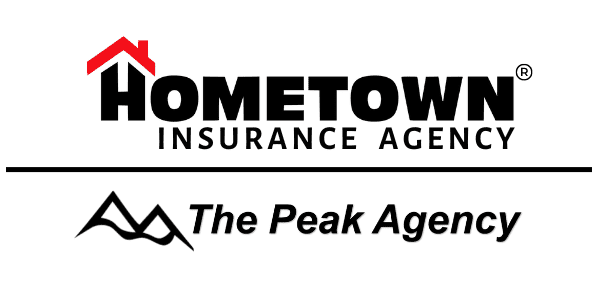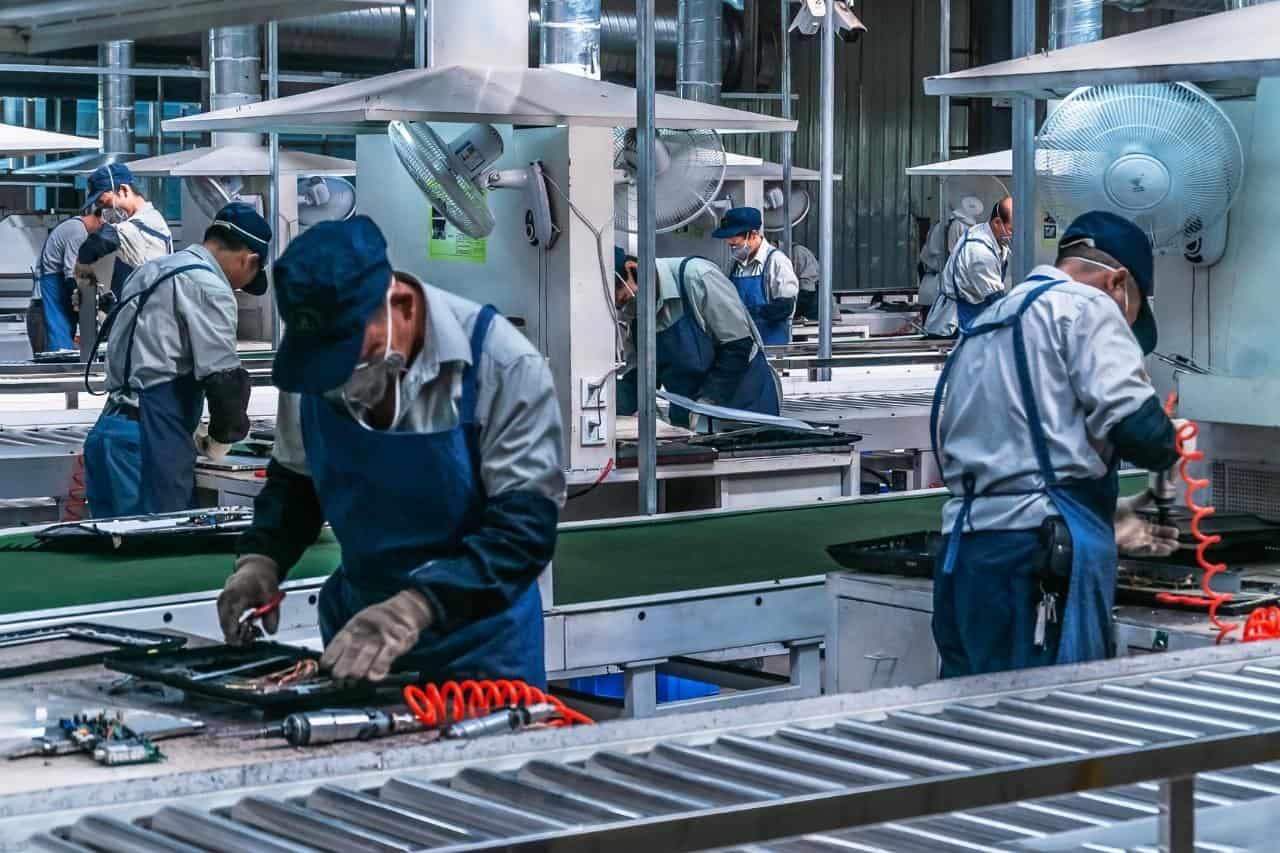THE PEAK AGENCY
Workers Compensation
INSURANCE
What is Workers Compensation Insurance?
When an employee is injured on the job, workers compensation insurance steps in to provide coverage. This type of insurance serves two purposes: it helps the injured worker by covering medical expenses and lost wages and protects the employer from being sued.
Workers comp insurance is typically mandatory in most states, which means that employers must carry this type of insurance in order to do business. In addition, workers compensation benefits are available regardless of who was at fault in the accident. If a worker dies as a result of a workplace injury, this type of insurance also provides death benefits for the worker’s dependents.
Consequently, workers compensation insurance plays an important role in ensuring that both workers and employers are protected in the event of a workplace accident.
Type of Injuries Covered By Workers Compensation Insurance
Workers comp insurance covers a wide range of injuries that can occur in the workplace. These can include both physical and mental injuries and can range from minor to severe.
Some of the most common types of injuries that are covered by workers comp insurance include slips, trips, and falls, lifting injuries, repetitive strain injuries, and exposure to hazardous substances. In addition, workers comp insurance can also cover psychological injuries such as stress and anxiety.
If you suffer an injury at work, it’s important to check with your employer to see if you are covered by workers comp insurance. This can provide you with financial support and help you get back on your feet after an accident.
Injuries NOT Covered By Workers Comp Insurance
When it comes to workers’ compensation insurance, it’s important to know not only what is covered, but also what is excluded.
In California, for example, workers’ compensation does not cover injuries that occur while commuting to and from work. Other exclusions include accidents that happen due to intoxication or drug abuse and injuries that are intentionally caused. Exemptions are also included in most policies if the injury is caused by an employee who is not following a company’s stated policies for workforce safety.
By understanding what workers’ compensation does and does not cover, employers can be better prepared to protect their employees in the event of an accident or injury.
Workers Compensation Insurance Benefits
Workers compensation insurance can provide vital financial protection if you’re injured at work. But what exactly is covered? Here’s a rundown of what you can expect workers comp to cover if you’re injured on the job:
- Medical expenses: Workers comp will cover the cost of your medical treatment, including hospital stays, surgeries, and rehabilitative care.
- Lost wages: If your injury prevents you from working, workers comp will replace a portion of your lost wages.
- Permanent disability: If your injury results in a permanent disability, workers comp will provide you with financial compensation.
- Death benefits: If your workplace injury leads to death, workers’ compensation will provide death benefits to your surviving family members.
Protection for Both Employees and Employers
Workers compensation insurance is an important form of protection for both employees and employers.
For employees, workers comp provides financial assistance if they are injured on the job. It can help to cover medical expenses and lost wages, making it easier for workers to recover from an accident.
For employers, workers comp helps to protect them from liability in the event that an employee is injured on the job. In most cases, workers comp will cover the cost of any medical treatment and lost wages, preventing the employer from having to pay out of pocket.
Workers comp insurance can help to improve employee morale, as workers will feel safer knowing that they are protected in the event of an accident. Overall, workers compensation insurance is essential coverage for both employees and employers.
Who Pays the Premiums for Workers Comp Insurance?
Workers comp insurance is typically paid for by the employer. The cost of workers’ compensation is usually a percentage of the employer’s payroll.
Unlike health insurance, workers’ compensation insurance does not require employees to pay any portion of their premium through payroll deductions. Instead, the entire cost of workers comp insurance is borne by the employer.
Workers Compensation Insurance Limits
Workers compensation insurance is a vital part of any business, providing financial protection in the event that an employee is injured on the job. However, there are limits to what workers comp policies will cover.
Most policies will only provide benefits for injuries that occur while an employee is working, and will not cover injuries that happen during breaks or after hours. Additionally, workers comp policies typically have limits on the amount of money that can be paid out for medical expenses and lost wages. As a result, it is important to understand the limits of your workers comp insurance before an accident occurs.
By familiarizing yourself with the coverage, you can help ensure that your employees are protected in the event of a workplace injury.
Factors Affecting Your Workers Comp Insurance Premiums
There are a number of factors that can affect your workers comp insurance premiums, including the type of business you operate, the number of employees you have, and the location of your business.
- The type of business you operate will generally dictate the amount of coverage you need and the risks involved. For example, businesses that involve hazardous conditions or that require employees to work with heavy machinery will typically pay higher workers comp insurance premiums than businesses that do not involve these risks.
- The number of employees you have will also affect your workers comp insurance premiums. Businesses with more employees are typically required to purchase more coverage than businesses with fewer employees.
- The location of your business can also affect your workers comp insurance premiums. Businesses located in states with higher workers compensation rates will typically pay higher workers comp insurance premiums than businesses located in states with lower workers compensation rates.
By understanding the factors that affect your workers comp insurance premiums, you can be better prepared to manage your costs and protect your business.
Workers Compensation Insurance for Employees Working or Traveling Outside Their Home States
The specifics of the workers compensation insurance can vary from state to state. As a result, you may be wondering if your employees are covered when they travel to other states for work.
Generally speaking, workers comp insurance will follow the employee no matter where they are working. So if an employee is injured while working in another state, they should still be covered by your workers comp policy. However, there may be some exceptions. For example, if an employee is working in a state that has its own workers comp system, then that system may take precedence over your policy. Additionally, if an employee is working for another company in another state, then that company’s workers comp policy would likely be the primary coverage.
As a general rule, you can rest assured knowing that workers comp will usually provide coverage for employees who are injured while working in other states.
Purchasing Workers Comp Insurance
When it comes to workers comp coverage, there are a few different options available, depending on the state you live in and how workers’ comp is structured in that state. In general, you can purchase workers comp insurance from licensed insurance companies, state-funded compensation programs, or through self-insurance. Here’s a quick overview of each option:
- Licensed Insurance Companies: In most states, workers comp insurance is available through licensed insurance companies. If you choose this option, you’ll typically pay premiums to the insurance company in exchange for coverage.
- State-Funded Compensation Programs: In some states, workers comp insurance is provided by state-funded programs. If you live in one of these states, you may not have to pay premiums for coverage. Instead, your employer may pay into the program to fund it.
- Self-Insurance: Another option for workers comp insurance is self-insurance. With this option, your employer pays for your coverage themselves, without going through an insurance company. This option is usually only available to larger employers who can afford to self-fund their workers’ compensation coverage.
Get Your Workers Comp Insurance from Your Trusted Insurance Agency, Today!
If you’re looking for workers compensation insurance, The Peak Agency can help. We have access to a variety of different insurance companies and products, so we can find the right one for you. We’ll work with you to understand your business and your needs, so we can find the best coverage for you.
Contact us today at (405) 332-5568 to get started.
Why Choose The Peak Agency For Your Workers Comp Insurance?

PROTECTING FUTURES
We have years of insurance experience helping clients prepare for the unknown.

ASSESSING NEED
We are are a no pressure, no hassle company who gets you covered efficiently for your insurance needs.

BUILDING RELATIONSHIPS
We provide a personalized business or individual assessment and help protect your hard-earned assets.
OTHER AVAILABLE INSURANCE
HOME
This helps protect your home, family, and valuables from damage or theft. A standard homeowners policy will cover you for major structural damages like fire and burglary.
Car
This will protect you and your vehicle in the event of an accident. It can help cover repairs, or replacement costs if your car is totaled. Some policies even cover rental cars.
Farm/RANCH
This offers protection from financial blows like droughts, natural disasters, or fire damage to property on land you own as well as animals & crops.
OIL FIELD
This protects in case there are any accidents at an oil field, on production equipment near natural gas fields, and even during transportation for personnel.
GET YOUR
FREE QUOTE TODAY!
Our Location
1209 S Main St
Stillwater, OK 74074

